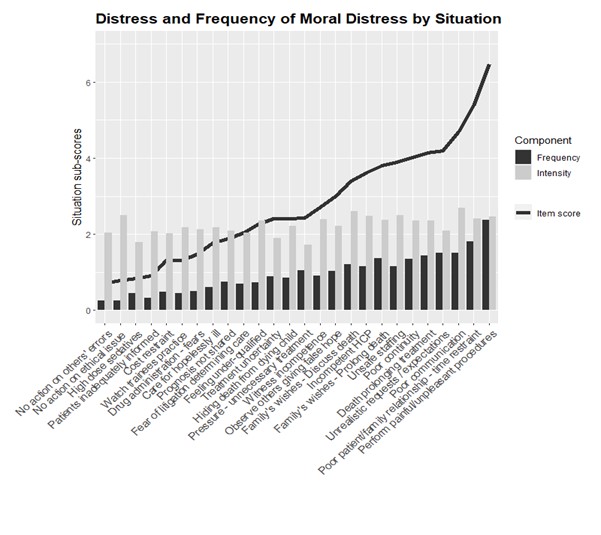Clinical Bioethics
Clinical Bioethics 1
414 - Ethical Dilemmas and Moral Distress in Pediatric Oncology Nurses (ETHPON)
Publication Number: 414.106

Arshia Madni, MD (she/her/hers)
Pediatric Palliative Care Attending
St. Jude Children's Research Hospital
Memphis, Tennessee, United States
Presenting Author(s)
Background:
Pediatric hematology/oncology (PHO) is fraught with ethical challenges leading to moral distress. Moral distress occurs when individuals feel they are unable to do what they perceive as ethically right. Impacts of moral distress in nurses can include burnout, attrition, and compassion fatigue. Relatedly, the ethical climate of an institution is the perception of ethically correct behaviors and handling of ethical issues. Previous studies have assessed moral distress and ethical climate in ICU and PHO nursing, but not in a standalone PHO center.
Objective:
Assess levels of moral distress and perceptions of ethical climate among PHO nurses while identifying their needs for education and resources in ethics
Design/Methods:
This cross-sectional quality improvement project used the Moral Distress Survey-Revised (MDS-R) (includes severity and frequency subscores of morally distressing situations) and the Clinical Ethics Needs Assessment Survey (CENAS). Electronic surveys via REDCap were sent to inpatient and outpatient PHO bedside nurses who worked at least 10 hours a week. One hundred and twenty-two surveys were analyzed after removing those missing ≥10% data. Analysis included descriptive statistics, Spearman correlation, and the Mann-Whitney U test. Nurses were also asked to rate topics in ethics education.
Results:
The mean MDS-R overall combined score was 2.75 (range 0-16). Means for severity (2.24) vs frequency (0.96) (range 0-4 for both), indicated that frequency of dilemmas are lower than perceived severity. Top 3 moral distresses were performing painful procedures, lack of meaningful conversations due to time constraints, and poor team communication. Inpatient nurses had higher levels of moral distress compared to outpatient (p=0.0002). Approximately 28% of PHO nurses considered leaving their current position. CENAS score was >3 (range 1-4) suggesting a positive ethical climate. There was moderate negative relationship between MDS-R combined scores and CENAS scores (p< .0001). Inpatient nurses reported less positive ethical climate compared to outpatient nurses (p=0.01). Nurses requested training in navigating withholding/withdrawing of life sustaining treatments, providing end of life care, and working with challenging patients/families.
Conclusion(s):
In this PHO center, nurses reported moral distress similar to previous studies in pediatric subspecialities. Although there was overall positive ethical climate, several ethical dilemmas heighten moral distress, especially in the inpatient setting. Nurses expressed need for resources and education in understanding and navigating ethical dilemmas..jpg)

